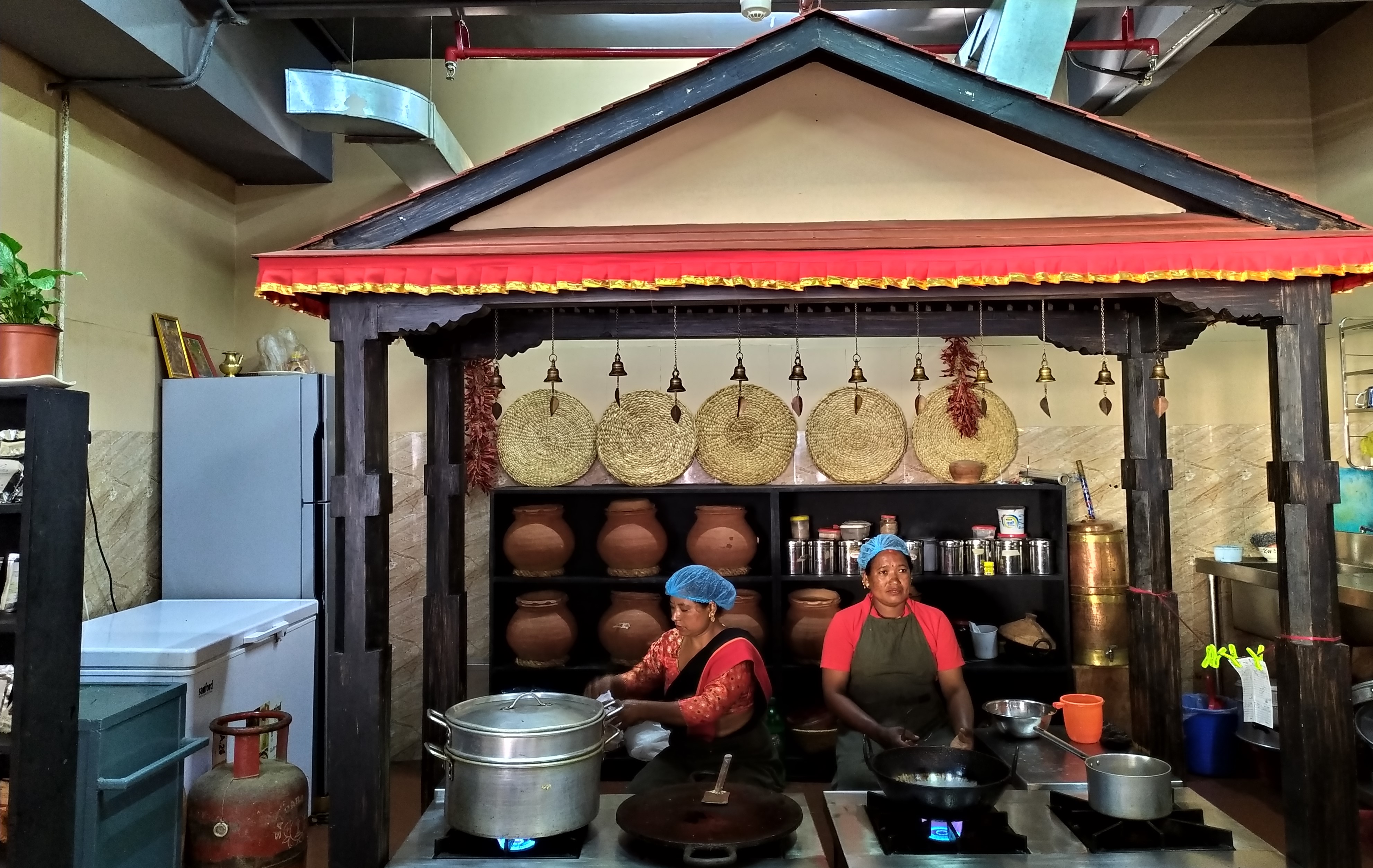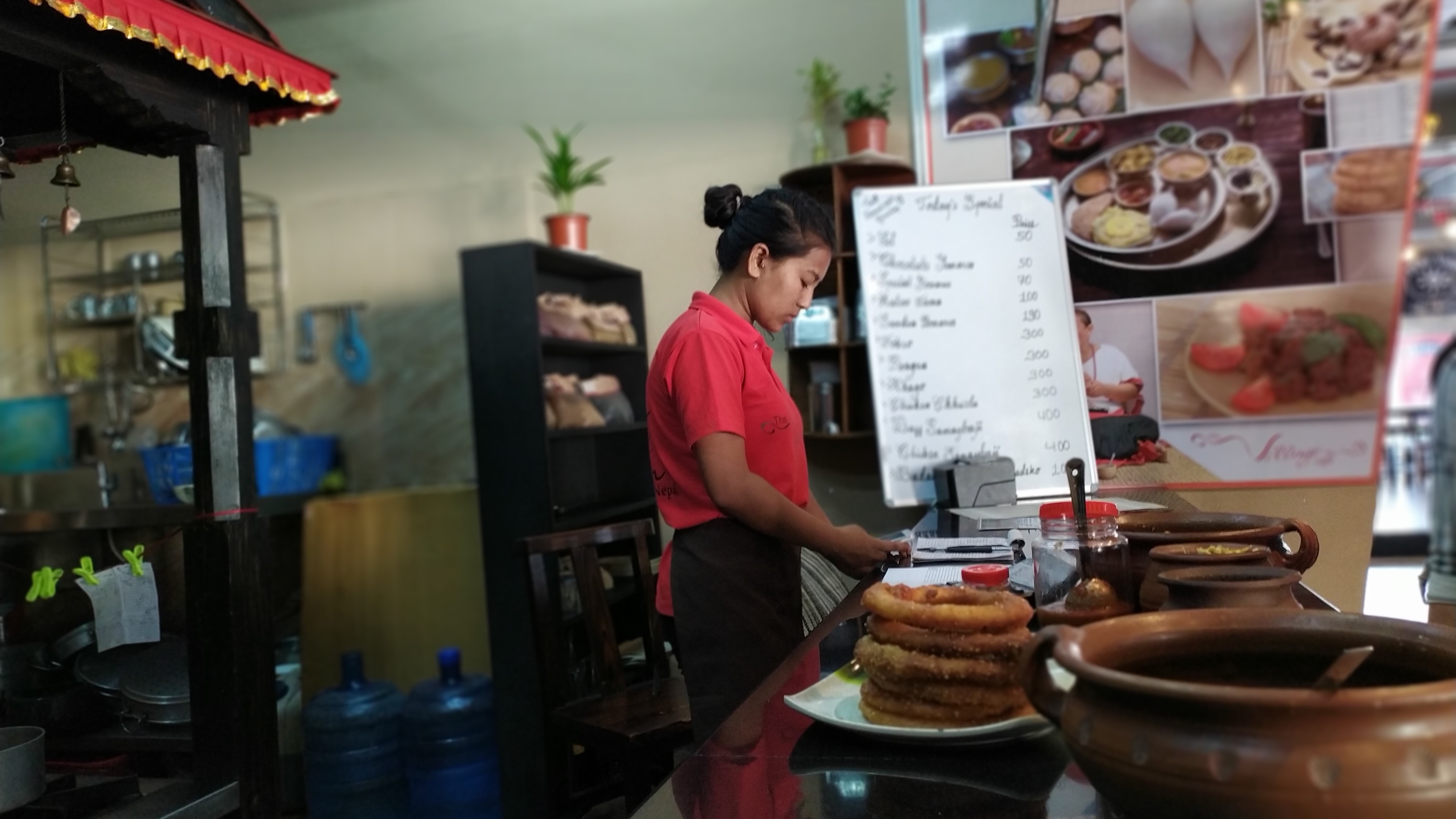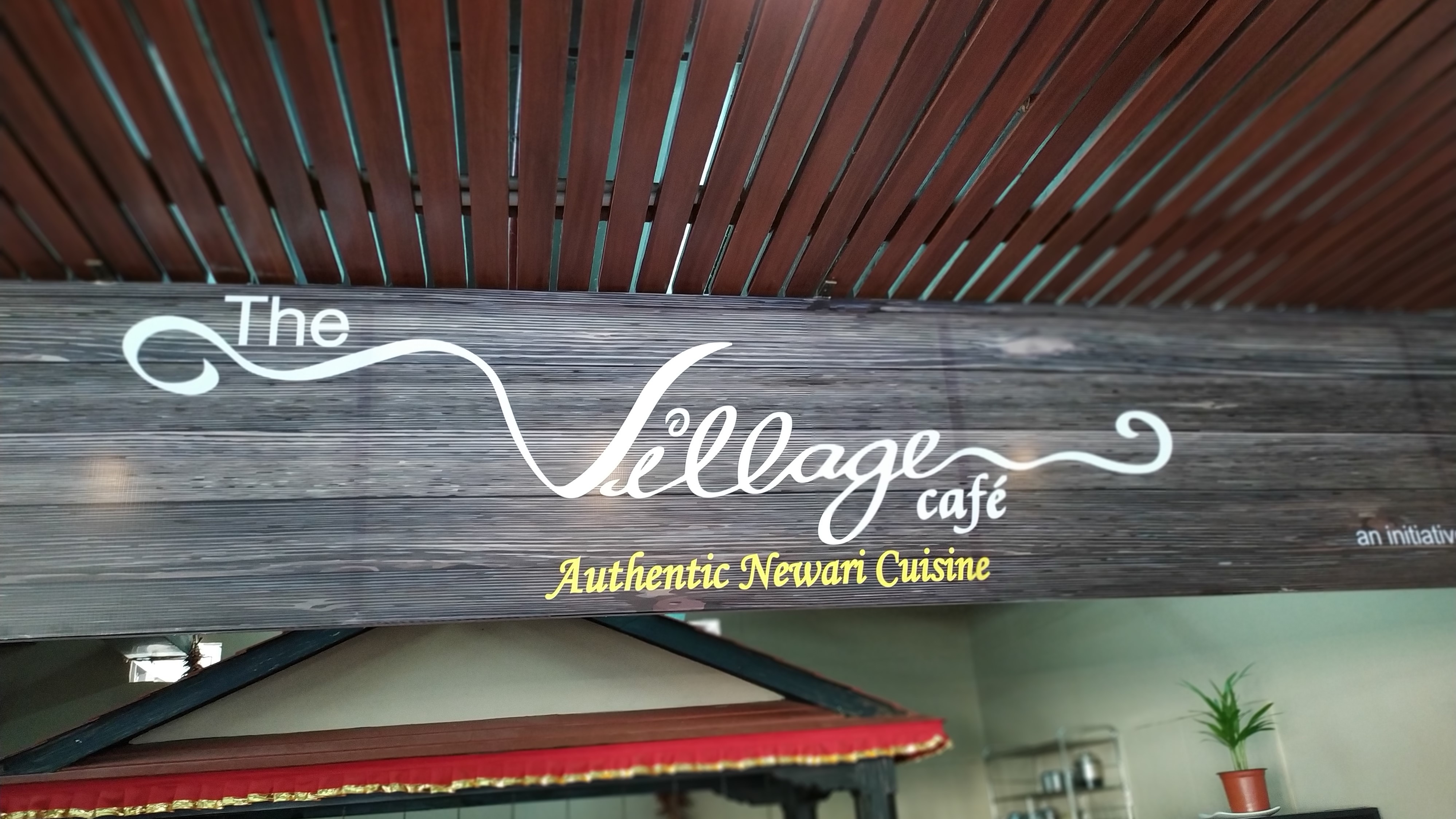Bringing The Tastes from The Kitchen to The Cafe - The Story of The Village Cafe SOCIAL ENTREPRENEURSHIP BLOG SERIES NO: 19
The Village Cafe, one of the ventures of Sabha Nepal, is connecting the foodies of the town with the taste of the traditional kitchen of different ethnic communities in Nepal. It is, on the one hand, breaking the stereotype of traditional food by bringing them to a modern cafe setting, and on the other hand, empowering women from these communities by giving market value of their traditional skills. Sabha Nepal is established in 2009 with the objective to empower home-based workers economically and to strengthen their livelihood. It has a network of more than 3000 home-based workers who have become members and the ownership of the company is also vested upon them. Bikas Udhyami sits with Rabin Amatya, one of the founders of The Village Cafe, and have a conversation on their journey.

Can you tell us how The Village Cafe started?
The idea was to respond to the needs of women and uplift their status in society by doing something around their existing skills. In the beginning, we thought handicrafts and textile would match our motive. But later on, we realized that these skills are not their primary one, rather they do it in their leisure time. The women, in fact, devote most of their time on cooking food and farming. Knowing that, in 2010 we experimented our idea by organizing a food event and invited women participants from the Newari community. The participants prepared 13 varieties of food that got good feedback. We knew that if we can do enough quality control and branding, we can achieve our objective. Then we went on to do further experimentation by participating in food fairs, food stalls, and commercial ventures. We realized that the combination of traditional cooking skills and farming would be best for the cafe. After eight months of experimentation, we opened our first cafe in 2011 at Pulchowk with a group of traditional skilled women. Now we have 5 franchises inside the Kathmandu Valley.
How was the early response from the customer?
The start was a little bit more challenging than now. People were not aware that a modern cafe also can serve delicious traditional food. They used to think that to eat such food, one either has to go to ‘Bhatti’ or someone’s marriage party. As Newari food used to be served with alcohol, some doubted on its taste. Some found it inappropriate to serve it on a daily basis, because people only have it during the cultural gatherings. But those who came to our cafe and taste our food, they were satisfied. We kept receiving a good responses on the taste as well as our business idea of linking up to traditional hands to serve these foods.
What is your business model? How is this different from others?
We do not care only for the profit of one sector, rather our attention goes on creating a food circle. Apart from selling the food, we also work on food production and cultivation. Our objective is to empower women economically especially home-based workers. Furthermore, we are also preserving the significance of our cultural food. We are preserving our traditional food making skills. We use locally available resources so our grassroots members can be benefited.
How do you manage kitchen materials and other stuff for your cafe?
As I said above, our Cafe is based on the farm-to-table concept. The vegetables, dry lentils and other kinds of stuff used in our cafe are directly supplied from the farms of our home-based workers. There are several business units located in a different parts of Nepal which supply the kitchen materials.
Why is it important to brand our cultural products/foods? How it should evolve with changing technologies.
Because branding is everything. The big difference between our products and imported products is branding. They do research so they have a visible brand. They put emphasis not only to deliver, but also to brand their delivery. We have some amazing food, but their branding is not customer-friendly. The brand lives in the memory of the customer hence it should be short, sweet, visible and customer friendly. Through it, we can gain the confidence of the consumer.
In the present context, the food delivery chain plays a very important role that is directly connected with branding. We also provide delivery services and almost 30% of our business is take away delivery. And partnership with food delivery chains like Foodmandu is more efficient in our case. On the one hand, it expands our market and on the other hand, reduces our effort on delivery services. This kind of collaborations gives a mutual benefit. We are one of the first restaurants in Kathmandu to partner with Foodmandu. It also helps to reach a younger generation.

What were the challenges that you face in the initial stage? What sorts of challenges do you face now? How do you solve it?
There are always challenges and shortcomings in every business. The customer incoming rate was very low at the beginning. We also faced criticism from people like who would want to eat Newari food daily? Alcoholic drinks are always compulsorily: who will eat Yomari in summer? In spite of criticism, we made Yomari the centre of attention and served them in our café with greater emphasis. At that time, Yomari was not made in restaurants and cafes. Many people had not heard the name even. The Village Cafe was named as Yomari Cafe before, but we decided to change the name because it was easier for everyone to remember.
As our cafe is run day-to-day by a home-based worker, we had some problems starting with them. Most of the women who were with us were illiterate and the learning curve was steady. We have to teach them about food hygiene,food standardization, and quality control. So, we hire professionals to train them but it is a time-consuming process. Also in Nepal, people want to work 9-5 only. But we have to work from 6 in the morning and maybe 8 in the evening depending on the timing of our customers. We need to prepare Yomari at 6:00 AM to supply it in Bhatbhateni at 9:00 AM but people don’t want to work in odd hours. When people are sleeping we may have to work so it is one of the challenges for us. Maintaining that discipline was also troublesome at the beginning.
What kind of impact is created by this initiative in our society?
Our objective is not just to open a restaurant. We follow the farm-to-table concept that shares the benefit for both ends. We bring potato from Nala, oil, and spices from Khokana to make food in our kitchen which is benefiting the farmers of Nala and Khokana, a place traditionally recognized for these products. We also bring Khuwa, vegetables, dry lentils from various places of Nepal, so our grass root members can benefit. Instead of buying these kitchen materials from local farmers from India, we wanted the benefit to be shared by everyone. It increases our cost a bit, but this makes a huge difference in the preservation of these precious products.
Now, we have more than 200 direct and 700 indirect beneficiaries working with us. Our community member has got good exposure by participating in various events. Some of them have started their own business as well. Now, Yomari is well known in other communities also. People love to eat it in every season. There are more than 3500 registered women members with us who are working every day to push this forward with the same intensity as it was before. We have established 335 micro enterprises. Different business units are being created and young entrepreneurs are also coming forward with their own business. Furthermore, being with us longer time has given young people the confidence to have their business in this field. Our members have used the incubation business model. They are able to run a business without an education background also. And now some of the second generations of the home-based workers are also working with us. They are educated and are ready to take this cafe forward in a more efficient way.How do you see the landscape of Social Entrepreneurship in Nepal? Are you satisfied?
Nowadays, social enterprise is growing rapidly. The young generation is coming up with many innovative ideas. There are also various accelerator programs that are helping these young entrepreneurs to grow. International organizations are also funding innovative and creative ideas. This is a huge plus point for someone who has ideas, but not the money to invest. Due to connectivity through the internet, people get lots of opportunities to learn and explore their ideas. I am happy to see all these things happening, but at the same time there is the tendency to blindly copy the already existing business model. This weakens both the newly established and the existing one. Some of the initiatives are also challenging for us. They are making us think more creatively to sustain in this growing competitive market. Meanwhile, they are motivating us to ensure quality.

What is your recommendation for aspiring social entrepreneurs?
If you want to start the normal business it's fine, but if you want to start a social venture then your first priority must not be the profit. As the idea is the most important aspect to start any business, you should focus on bringing your passion into your business idea. And to implement that into action, you need to be hardworking. If you want to be a social entrepreneur, just know that you have opportunities everywhere. It’s the era of technology and you really need to explore your ideas and nurture them properly till they grow. It is not necessary to observe business models of Nepal only. You can observe international business models and try to adopt these by making a favourable environment. But you should not copy any idea blindly, you need to make it your own in your context. Idea, proper vision and passion are the key elements for a successful business.
Find out more about The Village Cafe: http://bit.ly/The-Village-Cafe
